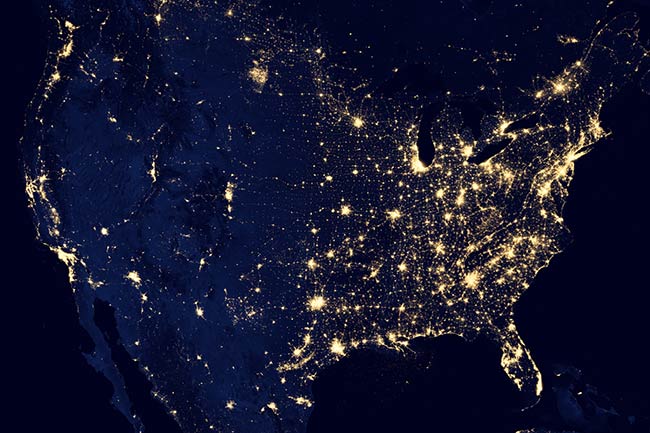By Rick Chromey
Every living thing has a life span.
As we age—whether as humans or organizations or even culture—we feel the “losses” that reveal slippage, deterioration, and aging. American culture, as it ages out of modernity, clearly experienced various losses in the decades following the Second World War.
1950s: Loss of Innocence
In the glorious decade of “I Like Ike,” sock hops, suburbs and Sputnik, America saw its innocence slip away as a new teen culture “boomed.” Television (1951), Playboy (1953), and Elvis (1956) reflected new voices, vices, and virtues. Marilyn Monroe, Hugh Hefner, and James Dean were rebels with a cause (with a rock ’n’ roll soundtrack).
1960s: Loss of Authority
In the ’60s American society was challenged on all fronts. Oral contraception was introduced (1960), while prayer (1962) and Bible reading (1963) were removed from public schools. Cultural heroes were assassinated and societal institutions were assaulted. From Beatle mop tops to hippie flower power, parents lost a grip on their kids to “sex, drugs, and rock ’n’ roll.”
1970s: Loss of Love
During the “Me Decade,” the “love fest” was over. Women sought liberation. Abortion was legalized. Divorce rates skyrocketed. Children were latchkeyed, day-cared and preschooled. A “free love” culture boogied to a new morality. Families blended (The Brady Bunch), battled (All in the Family), and broke (One Day at a Time).
1980s: Loss of Integrity
In the ’80s America experienced several events that tested resolve and reserve. John Lennon was murdered (1980) and assassination attempts were made on Ronald Reagan and Pope John Paul II (1981). AIDS (1981) and crack cocaine (1983) were epidemics. The Challenger explosion, Iran-Contra (1985), Black Monday stock crash (1987), televangelist scandals (1987-1988), and Pete Rose baseball banning (1989) shocked America’s faith.
1990s: Loss of Respect
During the Clinton 1990s, the grunge and rap culture thumbed its nose at everything conventional and traditional. Backward hats, earrings, and tattoos. School shootings, terrorist bombings, and gang wars. Oval office trysts, sports strikes, and steroids. Charles and Diana divorce. Beavis and Butt-Head, South Park, and The Simpsons. The word of the decade? Whatever.
2000s: Loss of Security
Everything changed after September 11, 2001. Terrorist attacks. Iraq War. Katrina. Housing crisis. The Great Recession. It was a rough, insecure decade. Boomers lost their retirements, Xers lost their jobs, and millennials lost hope.
Which brings us to the 2010s.
I posited these “losses” to my Facebook community with a query about the past eight years. What have we lost in this decade? A majority answered back with a single word: truth.
I think they’re right. This decade has been marked by a loss of truth. As cultural, religious, and political divides deepened, everybody has retreated to their own corners with their backs to the wall. The 2016 presidential election exposed the ugly reality. Finger-pointing. Twitter bombs. Fake news. Who are we to believe anymore? What truly is real?
The church of the 2020s (and beyond) possesses great opportunity, but it’ll require some commitment, compromise, and conversation—something churches struggle to create:
- Can we respectfully disagree?
- Can we communicate authentically?
- Can we interact peacefully?
The older we are, the more we might lament the “good old days.” We remember what “church” was and wish we still had it. Nevertheless, as our postmodern culture continues to move away from Judeo-Christian morality, perspectives, and values, and as Sunday attendance continues to slide, it’s critical to be flexible, adapting but not adopting, bridging but not burning.
These societal “losses” need not define our future, nor should they guide our mission.
But they do help us understand why we’re here and where we’re headed.


